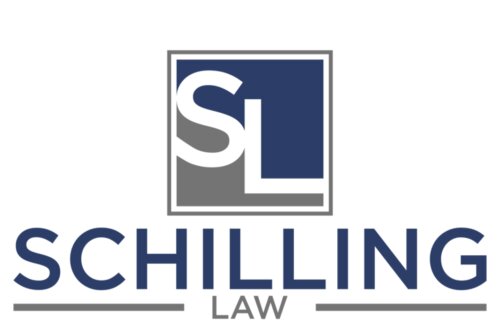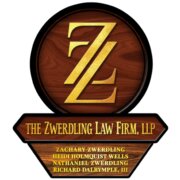Best Restructuring & Insolvency Lawyers in Kansas
Share your needs with us, get contacted by law firms.
Free. Takes 2 min.
Or refine your search by selecting a city:
List of the best lawyers in Kansas, United States
About Restructuring & Insolvency Law in Kansas, United States
Restructuring and insolvency law in Kansas refers to the legal processes, rights, and remedies available to individuals and businesses facing significant financial distress or inability to pay debts as they come due. These laws help creditors recover what they are owed and give debtors the opportunity to reorganize or liquidate assets under the protection of the court system, typically through bankruptcy proceedings or alternative mechanisms. Kansas follows both federal bankruptcy statutes, primarily found in the United States Bankruptcy Code, and specific state laws affecting debt collection, asset exemptions, and debtor-creditor relations. Individuals, small businesses, and large companies all have access to various restructuring and insolvency options tailored to their circumstances.
Why You May Need a Lawyer
Legal situations involving restructuring and insolvency can be complex and high stakes. Common reasons you might need an attorney include:
- Filing for bankruptcy as an individual or a business, and choosing the correct chapter
- Defending against creditor lawsuits, wage garnishment, or foreclosure actions
- Negotiating with creditors to restructure debt outside of court
- Identifying and protecting exempt assets during insolvency proceedings
- Ensuring compliance with federal and Kansas state disclosure and procedural requirements
- Challenging or responding to fraudulent transfer or preference claims
- Assisting with business liquidation or reorganization plans
- Representing creditors seeking to recover debts in bankruptcy or receivership cases
Without proper legal guidance, mistakes can lead to loss of property, denial of debt relief, or even criminal penalties for fraud or misstatements. A qualified lawyer helps you navigate these complicated proceedings, protect your rights, and maximize outcomes.
Local Laws Overview
In Kansas, restructuring and insolvency matters are shaped by both federal and state laws:
- Federal Bankruptcy Law - U.S. Bankruptcy Courts in Kansas handle consumer and business bankruptcy cases under Chapters 7, 11, 12, and 13 of the Bankruptcy Code.
- Kansas Exemption Laws - Certain property is protected from creditors in bankruptcy, such as specific values for your home, vehicles, personal property, wages, and retirement funds. Kansas has unique homestead, motor vehicle, and farm equipment exemptions.
- Creditor Rights and Collections - Kansas statutes dictate procedures creditors must follow to collect debts, including requirements for notice, lawsuits, and repossessions.
- Assignments for the Benefit of Creditors - Kansas law provides a mechanism outside bankruptcy for businesses to liquidate and distribute assets to creditors.
- Receivership - Courts may appoint receivers to take control of distressed assets or companies to ensure repayment to creditors and orderly management.
- Foreclosure and Repossession - Kansas has judicial foreclosure for real estate and specific processes for repossession of personal property.
- Debt Counseling and Relief Programs - Kansas recognizes certain debt management and relief agencies, but consumers should always check for state licensing and compliance.
Working with a Kansas-based restructuring and insolvency attorney ensures that you benefit from both the protections of federal law and the specific relief and requirements available under Kansas statutes and local court rules.
Frequently Asked Questions
What types of bankruptcy can individuals file in Kansas?
Most individuals file Chapter 7 (liquidation) or Chapter 13 (repayment plan) bankruptcy. Some family farmers and fishermen may qualify for Chapter 12, while Chapter 11 is usually reserved for larger businesses but can be available to individuals with high debt levels.
What is the “means test” for bankruptcy in Kansas?
The means test assesses whether your income is low enough to qualify for Chapter 7. It compares your household income to the Kansas median and reviews your allowable expenses to determine eligibility.
What property can I keep if I file bankruptcy in Kansas?
Kansas exemption laws typically allow you to keep your home (subject to certain limits), a vehicle up to a set value, personal belongings, retirement accounts, and tools of your trade, among other assets. Precise values and rules apply.
Are there alternatives to bankruptcy available in Kansas?
Yes, alternatives include negotiated settlements, debt management plans, assignments for the benefit of creditors, and receiverships. Some situations are best resolved without formal bankruptcy.
How are creditors paid in a Kansas bankruptcy?
Creditors are paid from available nonexempt assets according to their priority status set by the Bankruptcy Code. Secured creditors are typically paid first, followed by priority unsecured creditors and then general unsecured creditors.
Will filing bankruptcy stop foreclosure or collection actions?
Yes, bankruptcy filings generally trigger an automatic stay, which immediately halts most foreclosure sales, wage garnishments, and collection lawsuits during the bankruptcy process.
What is a trustee and what do they do?
A trustee is a court-appointed official who oversees your bankruptcy case, reviews your documents, manages nonexempt asset liquidation or repayment plan administration, and distributes funds to creditors.
Do I have to go to court if I file bankruptcy in Kansas?
Most filers attend at least one meeting of creditors, known as a 341 meeting, but rarely have to appear in court unless there are objections or disputes to resolve.
Can bankruptcy eliminate all my debts?
Bankruptcy can discharge most unsecured debts like credit cards or medical bills, but some debts are generally non-dischargeable, including most student loans, recent taxes, child support, alimony, and debts from fraud.
How long does bankruptcy stay on my credit report in Kansas?
A Chapter 7 bankruptcy typically remains on your credit report for up to 10 years, while Chapter 13 stays for up to 7 years. Rebuilding credit is possible and strategies vary by individual situation.
Additional Resources
If you are facing financial hardship or need legal advice regarding restructuring and insolvency in Kansas, the following resources may provide helpful information and support:
- United States Bankruptcy Court for the District of Kansas - Oversees all federal bankruptcy filings and provides forms and procedural guides.
- Kansas Legal Services - Offers low-cost and pro bono legal assistance for qualifying individuals facing bankruptcy or debt collection issues.
- Kansas Attorney General - Consumer Protection Division - Handles complaints related to debt collection practices and abuses.
- Local Bar Associations - Many offer lawyer referral services to help you find experienced restructuring and insolvency counsel.
- Nonprofit Credit Counseling Agencies - Accredited organizations can assist with budgeting, debt negotiation, and financial education.
Next Steps
If you think you need help with restructuring or insolvency issues in Kansas, take the following steps to protect your interests:
- Gather all relevant financial records, including income, debts, property titles, and prior court documents
- Review your options and consider researching basic bankruptcy and debt relief concepts
- Contact a qualified Kansas restructuring and insolvency attorney for a confidential consultation
- Ask about fees, timelines, and what information you will need to provide
- If immediate action is necessary, such as stopping a foreclosure or garnishment, inform your lawyer right away
Taking early and informed action increases your chances of achieving a positive outcome and moving forward with financial stability. Legal counsel ensures you understand your rights, choices, and the best path for your unique situation.
Lawzana helps you find the best lawyers and law firms in Kansas through a curated and pre-screened list of qualified legal professionals. Our platform offers rankings and detailed profiles of attorneys and law firms, allowing you to compare based on practice areas, including Restructuring & Insolvency, experience, and client feedback.
Each profile includes a description of the firm's areas of practice, client reviews, team members and partners, year of establishment, spoken languages, office locations, contact information, social media presence, and any published articles or resources. Most firms on our platform speak English and are experienced in both local and international legal matters.
Get a quote from top-rated law firms in Kansas, United States — quickly, securely, and without unnecessary hassle.
Disclaimer:
The information provided on this page is for general informational purposes only and does not constitute legal advice. While we strive to ensure the accuracy and relevance of the content, legal information may change over time, and interpretations of the law can vary. You should always consult with a qualified legal professional for advice specific to your situation.
We disclaim all liability for actions taken or not taken based on the content of this page. If you believe any information is incorrect or outdated, please contact us, and we will review and update it where appropriate.
Browse restructuring & insolvency law firms by city in Kansas
Refine your search by selecting a city.














